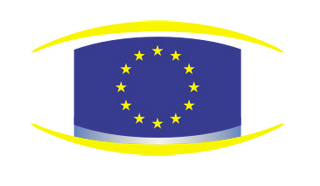The Council of the EU adopted a set of conclusions on the key components of a New Global Partnership for Poverty Eradication and Sustainable Development after 2015, calling for this partnership to build on, but also go beyond, Millennium Development Goal (MDG) 8.
The conclusions issued on 26 May 2015 state that the outcome of the Third International Conference on Financing for Development (FfD 3) in July 2015 “should be understood as" the Means of Implementation (MOI) component of the post-2015 development agenda.
 26 May 2015: The Council of the EU adopted a set of conclusions on the key components of a New Global Partnership for Poverty Eradication and Sustainable Development after 2015, calling for this partnership to build on, but also go beyond, Millennium Development Goal (MDG) 8. The conclusions issued on 26 May 2015 state that the outcome of the Third International Conference on Financing for Development (FfD 3) in July 2015 “should be understood as” the Means of Implementation (MOI) component of the post-2015 development agenda.
26 May 2015: The Council of the EU adopted a set of conclusions on the key components of a New Global Partnership for Poverty Eradication and Sustainable Development after 2015, calling for this partnership to build on, but also go beyond, Millennium Development Goal (MDG) 8. The conclusions issued on 26 May 2015 state that the outcome of the Third International Conference on Financing for Development (FfD 3) in July 2015 “should be understood as” the Means of Implementation (MOI) component of the post-2015 development agenda.
The Council of the EU document outlines the key components of a New Global Partnership, including recommendations for: promoting an enabling policy environment; developing “capacity to deliver;” raising domestic and international public finance; mobilizing the private sector; stimulating trade and investments; managing migration; and fostering science, technology and innovation.
Specific recommendations include cooperation on the provision and protection of global public goods, and on sustainable consumption and production (SCP) through frameworks such as the Sendai Framework for Disaster Risk Reduction (DRR) and the Ten-Year Framework of Programmes (10YFP) on SCP. The document also recommends that countries: adopt natural capital accounting and gender-sensitive budgeting; tackle tax avoidance; and enhance financial transparency, for example, in disclosing payments made by extractive industries to governments.
The Council of the EU commits to increased support for capacity building, including on statistics and monitoring. It reaffirms commitment to achieve the target of providing 0.7% of gross national income (GNI) to official development assistance (ODA), and to provide at least 0.15% of ODA to Least Developed Countries (LDCs) in the short term, while aiming for 0.20% “within the time frame of the post-2015 agenda.”
On trade, the Council of the EU commits to the success of the Tenth Ministerial Conference of the World Trade Organization (WTO) taking place in December 2015, in Nairobi, Kenya. They call on all developed countries and emerging economies to grant duty-free and quota-free access to all LDC products, except arms and ammunition, and they recommend applying instruments such as the Policy Framework for Investment (PFI) of the Organisation for Economic Co-operation and Development (OECD).
The conclusions affirm the need for a strong monitoring, accountability and review process to be an integral part of the post-2015 development agenda, and they encourage all countries to set up “systems for accountability” at the national level, based on national sustainable development strategies or other relevant frameworks.
The EU Council is the policymaking body of the EU, and provides the mandate to the European Commission to negotiate international agreements. These conclusions complement the conclusions of 16 December 2014 setting out the EU’s position on ensuring a universal and transformative post-2015 development agenda. [EU Council Press Release] [Publication: A New Global Partnership for Poverty Eradication and Sustainable Development after 2015: Council conclusions] [IISD RS Story on December 2014 Conclusions]